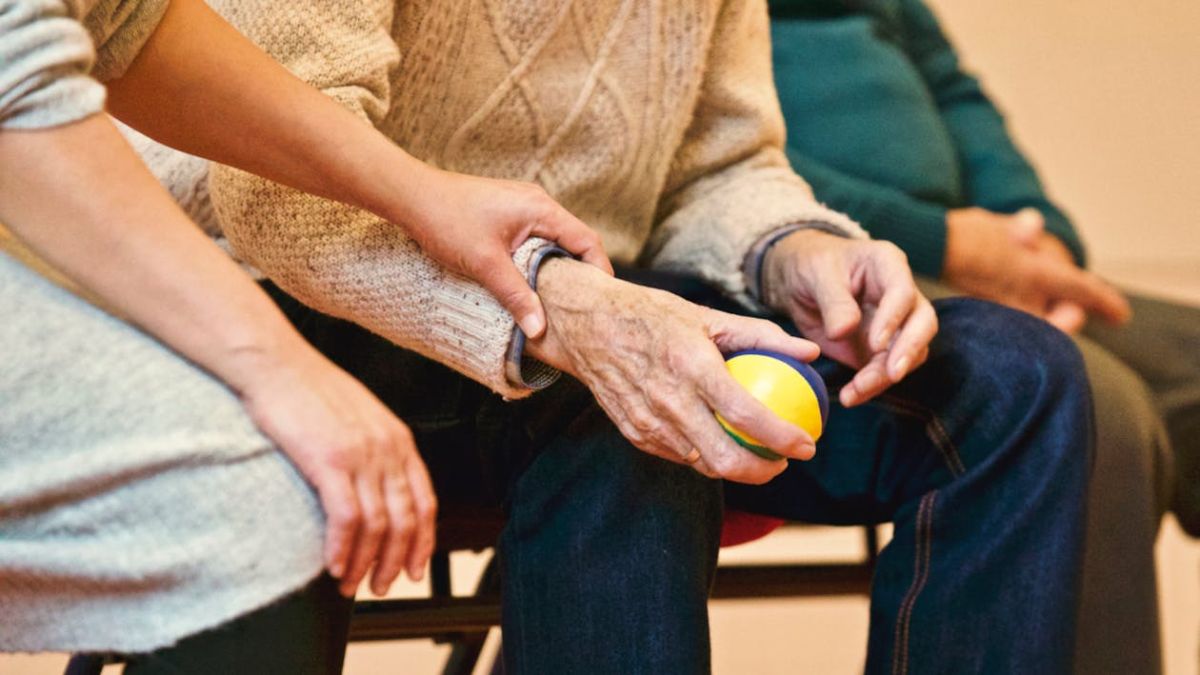Introduction:
You may know and love someone who is “on the spectrum,” but might not know exactly what that means. April is Autism Spectrum Disorder (ASD) awareness month, a time during which activists, healthcare providers, and people living with ASD come together to promote awareness, research, and advocacy on behalf of the ASD community. This month is the perfect time to understand the basics of autism, how it affects those who have it, and how home care can help support them.
What is Autism/Autism Spectrum Disorder (ASD)?:
ASD is a developmental disability that can cause social, communication and behavioral challenges. ASD is the fastest-growing developmental disability in the U.S., with an increasing rate of 10-17% each year. As many as 1 in 150 children are diagnosed with ASD and more than 1.5 million Americans currently have ASD.
ASD may be diagnosed as early as 18 months of age and there are a wide range of symptoms and behaviors associated with it. These include but are not limited to:
- Social anxiety- the most common anxiety disorder in ASD, social anxiety involves a fear of being around other people, having conversations, and/or being judged.
- Issues with personal space and boundaries- people with ASD, especially children, can be less aware of being too close to others, and are more prone to personal space invasions. They also may not detect signals indicating that others intend to initiate or end a social interaction.
- Increased risk for epilepsy and seizures- While autism doesn’t cause epilepsy and vice versa, they are linked because ASD involves intellectual disabilities and learning differences. This combined with variations in certain genes and chemical processes in the body and the environment, lead to the brain being “overactive” and more prone to seizures.
- Increased risk for gastrointestinal disorders- symptoms, such as vomiting, diarrhea, constipation, or abdominal pain, also may be more common among children with ASD. These symptoms are often connected with greater irritability, social disengagement, and hyperactivity.
It’s important to take note of these behaviors, and familiarize ourselves with how to create space for adults and children with ASD in social settings. Understanding how and why people with ASD do certain things that neurotypical people may not deem as “normal” helps create a society that can adapt less ableist structures and norms in order to help people with ASD thrive.
What causes ASD?
There is no one single known cause of ASD, but there are many different factors that have been identified that may make someone more likely to have ASD. These include environmental, biological, and genetic factors. Although little is known about specific causes, the available evidence suggests that the following may put children at greater risk for having ASD:
- Having a sibling with ASD
- Experiencing complications at birth
- Being born to older parents
- Having certain genetic or chromosomal conditions, such as:
- fragile X syndrome- a genetic condition that causes a range of developmental problems including learning disabilities and cognitive impairment. Affected individuals usually have delayed development of speech and language by age 2.
- tuberous sclerosis- a genetic disease that causes non-cancerous (benign) tumors to grow in the brain and several areas of the body, including the spinal cord, nerves, eyes, lungs, heart, kidneys, and skin.
The CDC is currently working on one of the largest U.S. studies to date on ASD called the Study to Explore Early Development (SEED). It was designed to look at the risk factors and behaviors related to ASD. The CDC is now conducting a follow-up study of older children who were enrolled in SEED to determine the health, functioning, and needs of people with ASD and other developmental disabilities as they mature.
Early diagnosis and intervention can lead to improved outcomes for people on the autism spectrum. Children and adults with ASD may benefit from specialized therapies that focus on communication skills, social interactions and behavioral challenges. During autism awareness month, it is important to explore how people with ASD can be cared for best. For some, a home-like or home-based setting may be the best place for them to receive care.
Autism in a home care context—how can Home Health Aides (HHAs) help people with autism?:
In-home health care is a great alternative for people with ASD for many reasons. A common behavior shared by many people with ASD is sensitivity to minor changes in routines. This can mean that a situation like going to the emergency room may be overwhelming or especially difficult for them, causing them and their families to seek other alternatives.
By having a Home Health Aide (HHA) come to the person’s home, disruption to their daily routine will be minimized. Anxiety, especially social anxiety, affects up to 42% of people with ASD, so any type of clinic-based medical situation may be triggering for a person on the spectrum. Even if a person with ASD does not have issues with routine changes, they may get overwhelmed being in a public place like a doctor’s office or urgent care clinic. For these reasons, providing them with medical care at home can make the process easier.
Home care for children with ASD:
Functional Gastrointestinal Disorder (FGID) is most common amongst children with ASD and can include chronic diarrhea and/or constipation. Gastrointestinal (GI) issues like this can be uncomfortable for anyone, but this is an even greater concern if you’re caring for a person with ASD, as they may not be able to verbalize these symptoms. In-home healthcare can eliminate the risk of an accident or uncomfortable situation for autistic children with FGID.
Seizure disorders and epilepsy are also frequently reported medical issues in individuals with ASD, affecting up to one third of the population. In-home treatment is a top choice for someone experiencing a mild seizure, as symptoms can include involuntary stiffening or jerking of muscles, confusion, loss of consciousness, and unusual thoughts or sensations, making it very difficult to get them to a doctor or urgent care clinic.
| Takeaway: Patients with ASD are best cared for when approached from an individualized standpoint, allowing them to receive the best care possible for them. |
How True Care can help:
True Care’s certified caregivers tend to a range of personal care needs, providing the ideal in-home treatment for children and adults diagnosed with ASD. True Care staffs a vast team of multicultural paraprofessionals, who provide assistance with the activities of daily living such as:
- Bathing
- Grooming
- Dressing
- Light housekeeping
- Meal Prep
We also provide accompaniment to:
- Doctors visits
- Appointments
- Grocery shopping
- Social activities
- Family events
True Care’s in-home care programs are a great alternative for those living with ASD. Our services include initial and ongoing education for families on how to care for a loved one with a disorder such as ASD. We help clients create a custom plan of care for each situation. This includes close monitoring, follow up and management schedule of therapies, medications, and infusions as needed. These highly specialized resources help avoid hospitalization for any symptoms associated with ASD, all while keeping families together.
As trusted healthcare professionals, True Care can provide the attentive and knowledgeable in-home treatment that people with ASD deserve. We have first-hand experience treating those with behavioral, cognitive, and intellectual disabilities, so you can trust that we will provide the extra care needed for you or a loved one with ASD.
Conclusion:
ASD is a complex condition that is not yet fully understood. It can come with many challenges including social difficulties, cognitive processing differences, and medical factors that all combine to impact the lived experiences of people with the condition. In-home care offers a safe, familiar alternative for people with ASD who need to receive medical care or non-medical caregiving. Home care can also help someone with ASD to maintain their independent lifestyle while simultaneously encouraging positive behaviors that can more easily occur in a home environment.
Whether you work in the field of home care or are a person with ASD, this month is a great opportunity to educate yourself and others on the topic of autism. Awareness of autism allows HHAs and other professionals to provide better care, while also helping people with ASD feel more understood and supported. And most importantly, take the time to seek out and listen to the voices of those living with ASD as you learn more about the condition.
Sources:





